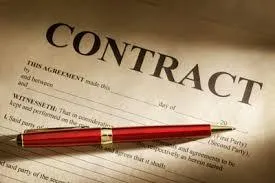
Breaking Down the Arizona Real Estate Purchase Contract: What You Don’t Know Can Hurt You
Most people wouldn’t dream of signing a 10-page contract without reading it—unless they’re buying a home in Arizona.
I’ve seen it too often: excited buyers rush to sign the Arizona Residential Resale Real Estate Purchase Contract without fully understanding what’s in it. “It’s standard,” they’re told. “Everyone uses the same form.” That may be true—but how you fill out that form, what’s included (or not), and how closely you pay attention can change everything.
Let’s be real: this document isn’t just paperwork. It’s legally binding. And when thousands of dollars, timelines, and long-term consequences are involved, ignorance is not bliss—it’s expensive.
The Illusion of Simplicity
The form itself is deceptively clean. A few blanks to fill in, a few checkboxes, a signature at the bottom. But behind every line is a decision point: Who pays for the appraisal? What happens if the inspection turns up a problem? What if the buyer’s financing falls through?
These aren’t “figure it out later” situations. The contract answers them—whether you understand it or not.
You Bought It—But Did You Also Buy the Leaky Roof?
The inspection period is your chance to back out, negotiate repairs, or move forward with eyes wide open. It’s not just a formality. I’ve seen buyers skip asking for a repair because they didn’t realize they had the option—or waited too long to send a formal request.
Worse, some think they can just “deal with it later.” The contract doesn’t work that way. Once the inspection period closes, you’re accepting the property as is—leaky roof and all.
Verbal Promises Mean Nothing
Let me say that louder: if it’s not written in the contract, it doesn’t exist. That stainless steel fridge you saw during the showing? If it’s not explicitly included in Section 1c, it’s fair game for the seller to take it with them.
This happens more often than you think, and it’s always preventable.
The Earnest Money Myth
Here’s another one I hear all the time: “If the deal doesn’t work out, we’ll just get our earnest money back.” Not necessarily. If you miss a deadline or back out without a valid contractual reason, you could forfeit that deposit. That’s not a scare tactic—it’s reality.
The Fine Print is Not Optional
Too many people treat the contract like a formality, when in truth it’s the framework of the entire deal. It dictates who pays for what, how disputes are resolved, and what happens if someone defaults. It even determines whether you can move in on closing day or need to wait.
None of that is minor. None of it is “just paperwork.”
What’s the Takeaway?
You don’t need a law degree to understand the Arizona real estate purchase contract—but you do need to stop signing it blindly.
Ask questions. Read the fine print. Make sure everything that matters to you is in writing. And work with professionals who are more interested in protecting your future than closing the deal.
Because at the end of the day, a contract shouldn’t just get you the house. It should protect you in the house—and after you move in.
What’s Your Take?
Does the housing market look as promising to you as it does to us? Share your thoughts below, and don’t miss out on joining our Facebook group for first-time homebuyers! Connect with other buyers who have similar questions, get real-time updates on real estate trends, and download our free First Time Homebuyer Guide.
Want to know what it takes to be a first time homebuyer and how we can get you there? Join us for our homebuyers' webinar on May 21st.
Ready to make your move? Apply for a mortgage here to lock in a rate and take advantage of this thriving market!
Realtors specialized working with First Time Homebuyers?
Apply here to be one of our partners
Stay Connected:
